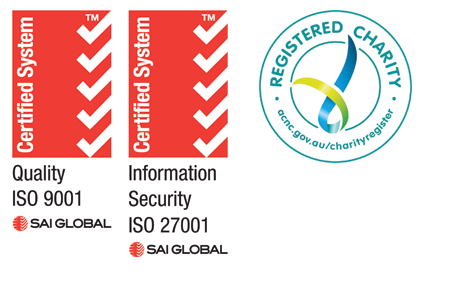of people living in our region speak a language other than English at home
downloads of our after-hours quality improvement toolkit for aged care
subscribers to Network News
NWMPHN is committed to evidence-based decision-making. Foundational to this process is the safe acquisition and analysis of data from multiple sources.
of people living in our region speak a language other than English at home
downloads of our after-hours quality improvement toolkit for aged care
subscribers to Network News
This year, NWMPHN worked closely with general practices, mental health, allied health and other primary health care professionals to identify service gaps. Then we collaborate to co-design and fund innovative and effective solutions that make it easier for people to get the care they need. The foundation of all this work is data – the evidence it provides, and the stories it reveals.
In 2024–25, NWMPHN delivered the nationally recognised data and analytics systems that underpin the Department of Health, Disability and Ageing’s strategy for mental health service reform. The mission now is to build on this foundation to create a unified capability across all primary health networks, strengthening consistency, collaboration, and insight.
Health Needs Assessments are not only statutory requirements for NWMPHN, they are also a critically important source of information and analysis that allows us to identify service gaps – and work to fill them. It combines data analysis with insights from interviews, workshops and surveys involving community members, general practices, commissioned services, peak bodies, community health, and local government.
In 2024-25, the team partnered with commissioning units to develop new monitoring and evaluation tools for more than 30 NWMPHN programs. Highlights included frameworks and evaluations for the Health Care Neighbourhood Project, Early Interventions for Healthy Ageing, and The Zone alcohol and other drug programs.
As part of its community engagement for health needs assessment work, NWMPHN partnered with Melton City Council in August 2024 to explore barriers to social inclusion and health system service gaps experienced by South Sudanese youth. Melton is home to almost 2,400 people of South Sudanese heritage, with 30 per cent aged between 12 and 24.
While developing its HNA, NWMPHN commissioned the Victorian Aboriginal Health Service (VAHS) to conduct community consultations with Aboriginal people in the region. VAHS spoke with 62 people through a series of seven group and 12 individual yarning sessions held across the region, resulting in the Aboriginal Community Consultation Outcomes Report 2024.



NWMPHN's delivery of the Australian Government's Medicare Mental Health phone service has been successfully verified under the National Safety and Quality Digital Mental Health Standards.
We welcome everyone
We acknowledge the people of the Kulin nations as the Traditional Custodians of the land on which our work in the community takes place. We pay our respects to their Elders past and present.
We also recognise, respect and affirm the central role played in our work by people with lived experience, their families and carers.
© Copyright NWMPHN 2025.